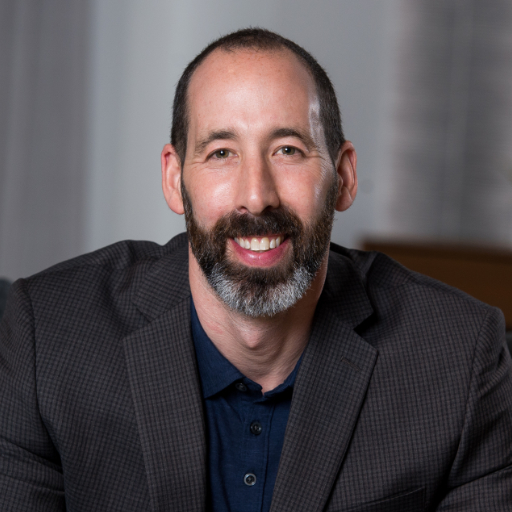Welcome to the second part of our Q&A mini-series with some of the experts we interviewed in our recent Future of Legal Services Report...
DAVID PIERCE, SVP & HEAD OF GLOBL SALES, AXIOM

Can you tell us a little bit about Axiom and the ways you are innovating to improve service delivery?
“The first thing is it’s not just to improve the way legal services are delivered, but to improve the career opportunities and the way it’s practiced. Axiom is a gateway between clients and lawyers that gives great legal talent opportunities and work that is interesting and exciting, and to practice the way that suits them. We’re always thinking about how we can make it easier for lawyers to find out what we’re working on and the opportunities that might be interesting to them, and to take the next steps in their career to advance and build skills, all while making it easier for clients to have a real-time beat on our legal talent and have access to the right resources at the right time. That’s what Axiom is all about—the crux of our business is really a human talent business. Technology can amplify and enable that human talent, and also to enable the best possible client experience, but if someone asks me what business Axiom is in, we are the ‘who’ of legal. And that’s the one thing that no one can ever reverse engineer or clone. Everybody uses the word disruption and innovation, but I think the real basic word is evolution, this is an historic industry that is confronting a modern era and that gives rise to a lot of opportunity. There is a lot of generational turnover in those ranks right now, and the new leaders that are emerging will be more native to technology and more open to the possibilities of what technology can do. That’s not to say there aren’t leaders who have been in their seat for decades who are also very open to technology, but the pace of innovation will only quicken as a new generation comes through—and not because a computer will reinvent how legal work is done, it’s just that software is impacting everything. Marc Andreessen said 10 years ago that software will eat the world, and we’re seeing all kinds of iterations of that. The fact that he’s just joined the board of a legal industry start up is a really good indication of the opportunity he sees in this space. Legal will be increasingly run and influenced by technology and we’re going to see more people in legal departments who are really technologists first—right now we don’t have that many of them.”
What is driving the innovation we are seeing?
“There are some really smart, experienced, creative leaders at some major large law firms, but I think the industry has shown that the change will come from the clients who are demanding it, they will drive a lot of the change in how legal services are structured and rendered. You can see that with how M&A work and divestiture work and regulatory work was unbundled over the last 10 years. It wasn’t most law firms saying we want to unbundle this work and use lower cost providers to handle seams of it, it was clients saying we need to get better at how we’re paying for this work and we need to get better at how we are resource-allocating in large transactions. There will be parts of it a large law firm is really uniquely suited to handling, because it’s bet-the-company work that involves an army of lawyers on every continent, or lawyers with the deepest and rarest expertise who built careers on that specific kind of bet-the-company work, but there are whole segments of this work—commercial contracts review, for instance—that for years weren’t allocated efficiently.”
What are the challenges around convincing in-house teams to use an alternative provider like yourselves instead of a traditional firm?
“The fact is general counsel and in-house teams have engaged alternative providers to the point where they’re no longer really alternative. Big clients are leaning on them more and more regularly, so it’s not a risk using an alternative provider anymore, it’s just business as usual. A couple of things have changed—most general counsel and law department leaders have started to see for themselves the calibre of lawyers who practice the Axiom way. Maybe 10 or 15-years-ago I don’t know how many leaders of law departments would have presumed that a place like Axiom would be able to attract and retain the kind of talent that we have, that’s probably the thing that has driven more acceptance—it’s the calibre of talent. We value the lawyer and the client experience equally, this isn’t just a business focused on client service, in many ways the lawyer is our client. The other thing is that in-house teams have become less afraid. Two decades ago, no general counsel would ever get fired for hiring an AM Law 10 firm to handle something, but it was a big risk to go with a firm like Axiom, because no one then really understood what Axiom was. It doesn’t take guts to engage Axiom lawyers to handle complicated tasks anymore because we work with half of the Fortune 100.”
How do you see the legal market evolving over the next five years?
“I come from a traditional law firm background and I have a lot of reverence for the quality and the calibre of lawyers and the work they do, and that’s a training ground for a lot of great lawyers. There will always be some large law firms that thrive in this market, they provide a service that very few, if any, ALSPs can match. But there will be some consolidation, there will be a lot of firms that will get really focused and good on a couple of things, and there will be opportunities for providers who are really just about boutique lawyering who then lean on alternative providers to help them fill in the blanks and build resourcing teams for litigation or for big transactions. If you look at the legal market today, it’s so distributed—there is no one major provider that really owns a meaningful slice of the market, we’re ultimately in an industry dominated by mom and pop shops, so we’re going to see a handful of legal services providers start to get material slices of the entire industry. It’s way too distributed at the moment for a modern industry.”
What other challenges are you focused on?
“This industry will become increasingly inclusive and diverse, but we’re still not where we need to be. We have to be more creative in how we identify and welcome legal talent into the profession. Law school credentials are important but they do not necessarily indicate how good an in-house lawyer that person will be. What indicates what a good in-house lawyer will be in my own litmus test is how comfortable are they speaking plain language? How comfortable are they working with people who aren’t lawyers? Are they comfortable in tiers of ambiguity, with shades of grey, or does everything have to be binary? Are they good at acting like their hair is not on fire even when a reasonable person’s would be? Those are indications of great in-house talent. I have seen too many legal professionals ruled out of opportunities elsewhere in the industry because they don’t have the pedigree or the record that looks like everyone else’s. Identifying talent that recruiters typically overlook and giving them opportunities, and then watching them thrive, is a really great thing Axiom can do because we can do it at scale—nobody has hired more lawyers in the last five years than we have, so if anyone can move the needle on diversity, that is us.”
Click here to download the full report.





